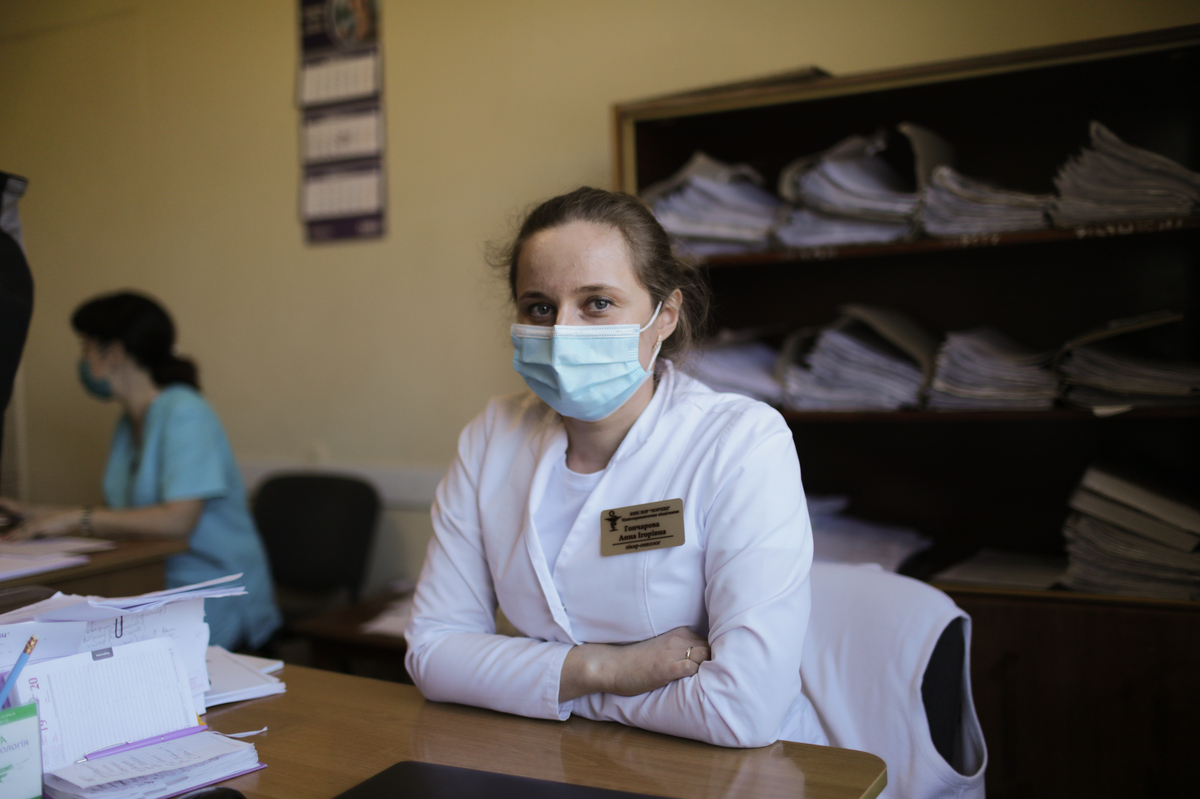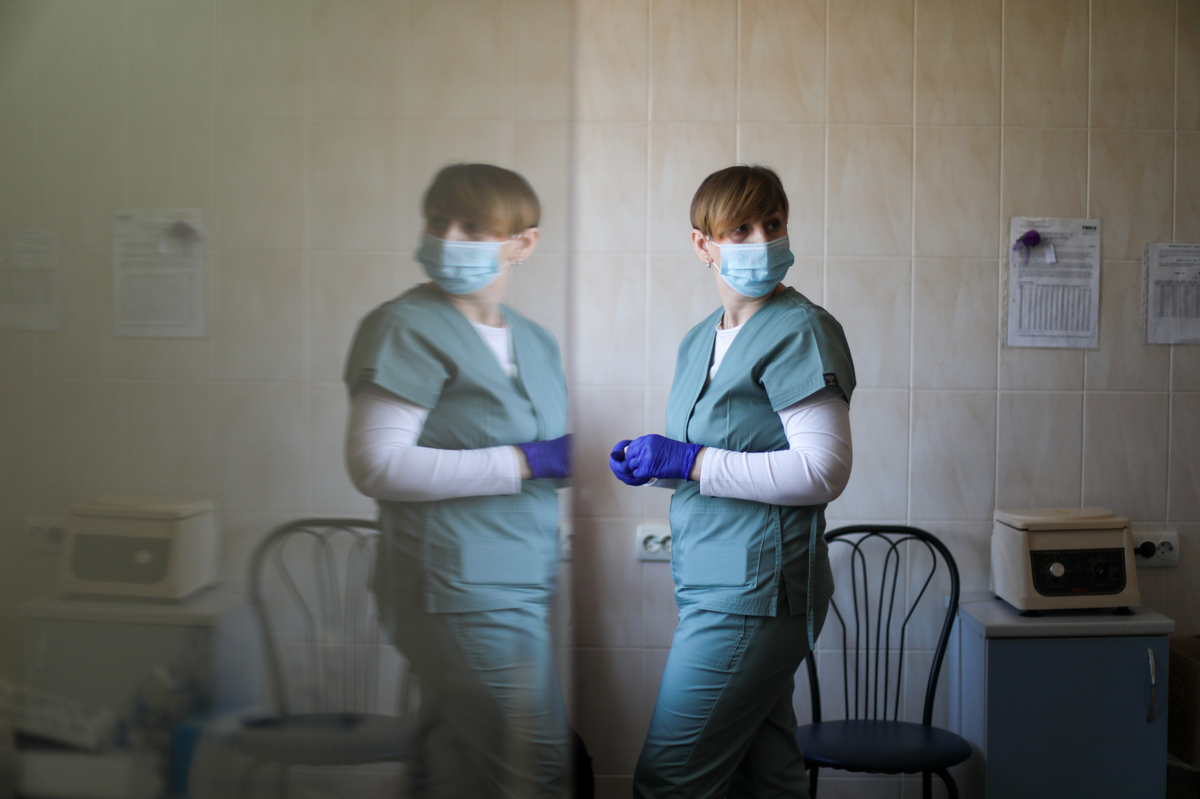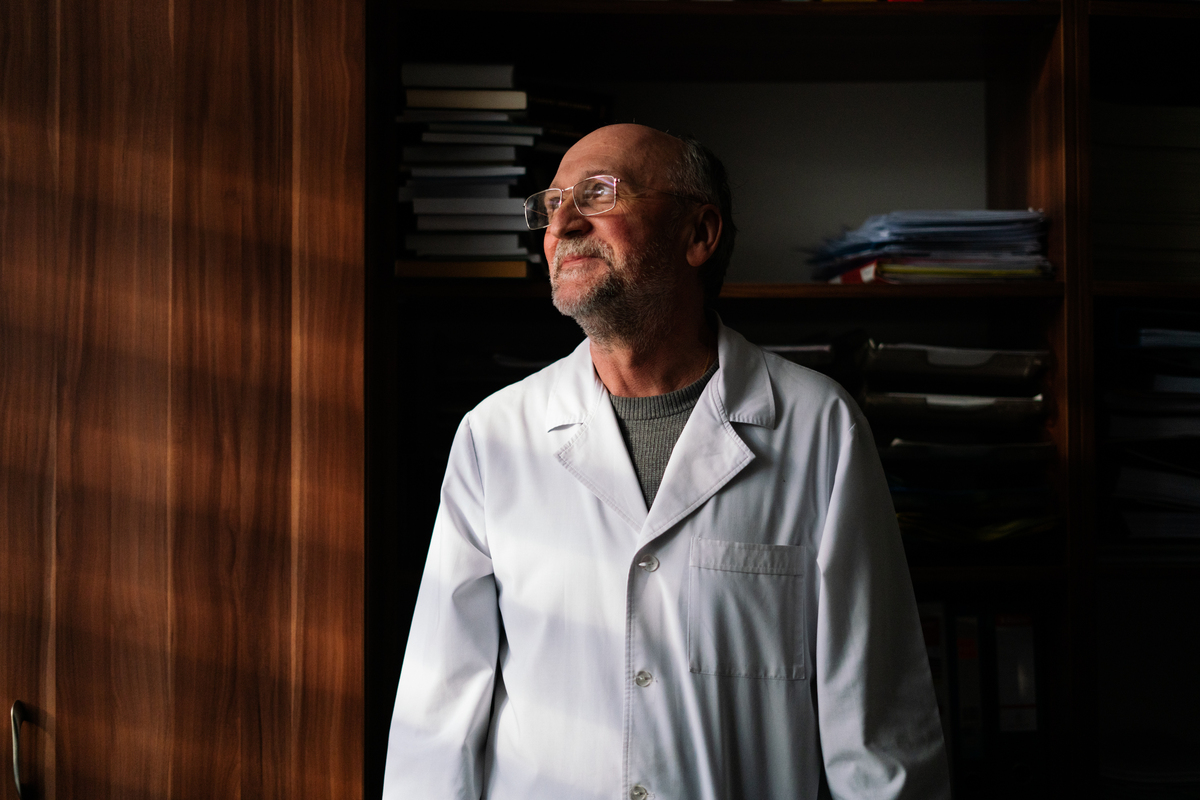[ad_1]

Patients wait in a hospital hallway in Lviv. They receive treatment in the morning and don’t stay overnight because it’s too hard to get hundreds of patients into the shelter in the case of an air raid siren.
Ryan Kellman/NPR
hide caption
toggle caption
Ryan Kellman/NPR

Patients wait in a hospital hallway in Lviv. They receive treatment in the morning and don’t stay overnight because it’s too hard to get hundreds of patients into the shelter in the case of an air raid siren.
Ryan Kellman/NPR
Lviv’s regional cancer hospital has become a refuge for the nation’s sick. The patient load has doubled as the displaced search for treatment away from Russia’s bombardments in the country’s center, east and south.
But even here, in the relative safety of this western city, supplies are running low. The hospital had about three weeks of reserves on site. Their stockpiles near and in the capital city of Kyiv are now inaccessible and the hospital is in urgent need of medical resupplies.
Doctors say they’re treating patients who are dealing with a double trauma.

The patient load has doubled in Lviv as the displaced search for treatment away from Russia’s bombardments in the country’s center, east and south.
Ryan Kellman/NPR
hide caption
toggle caption
Ryan Kellman/NPR

The patient load has doubled in Lviv as the displaced search for treatment away from Russia’s bombardments in the country’s center, east and south.
Ryan Kellman/NPR
“Patients from the east and Kyiv region, they are exhausted emotionally from both war and from disease,” said clinical oncologist Anna Honcharova. “It’s much harder than in COVID times. And there are a lot of patients — much more than we usually have. They tell stories of bombings, how they were in shelters — lost homes. It’s horrible.”
Every day, they choose the duty of care over their own personal safety. When the war first began over three weeks ago, Dr. Orest Trill, the hospital’s deputy director, made a decision.
“You cannot just stop in the middle of the operation when the air raid siren goes off,” he says, “so we decided to continue operating — despite the war.”

A patient lies in one of the many full hospital beds in Lviv.
Ryan Kellman/NPR
hide caption
toggle caption
Ryan Kellman/NPR

A patient lies in one of the many full hospital beds in Lviv.
Ryan Kellman/NPR

Lviv’s regional cancer hospital has become a refuge for the nation’s sick.
Claire Harbage/NPR
hide caption
toggle caption
Claire Harbage/NPR

Lviv’s regional cancer hospital has become a refuge for the nation’s sick.
Claire Harbage/NPR

At times, Dr. Orest Trill, the deputy director of Lviv’s regional cancer hospital, has had to tell patients in besieged areas that they can come to the hospital but they don’t have the medicine to treat them. He calls it “morally hard.”
Claire Harbage/NPR
hide caption
toggle caption
Claire Harbage/NPR

At times, Dr. Orest Trill, the deputy director of Lviv’s regional cancer hospital, has had to tell patients in besieged areas that they can come to the hospital but they don’t have the medicine to treat them. He calls it “morally hard.”
Claire Harbage/NPR

A patient sits in a chair while being treated. Doctors say they’re treating patients who are dealing with the double trauma of fighting to heal while trying to survive Russia’s invading forces.
Ryan Kellman/NPR
hide caption
toggle caption
Ryan Kellman/NPR

A patient sits in a chair while being treated. Doctors say they’re treating patients who are dealing with the double trauma of fighting to heal while trying to survive Russia’s invading forces.
Ryan Kellman/NPR

“Patients from the east and Kyiv region, they are exhausted emotionally from both war and from disease,” clinical oncologist Anna Honcharova said.
Ryan Kellman/NPR
hide caption
toggle caption
Ryan Kellman/NPR

“Patients from the east and Kyiv region, they are exhausted emotionally from both war and from disease,” clinical oncologist Anna Honcharova said.
Ryan Kellman/NPR

A nurse administers a shot to a patient.
Ryan Kellman/NPR
hide caption
toggle caption
Ryan Kellman/NPR

A nurse administers a shot to a patient.
Ryan Kellman/NPR

Yaroslav Shparyk is at the cancer hospital in Lviv.
Claire Harbage/NPR
hide caption
toggle caption
Claire Harbage/NPR

Yaroslav Shparyk is at the cancer hospital in Lviv.
Claire Harbage/NPR

Even here, in the relative safety of this western city, supplies are running low.
Claire Harbage/NPR
hide caption
toggle caption
Claire Harbage/NPR
[ad_2]
Source link


